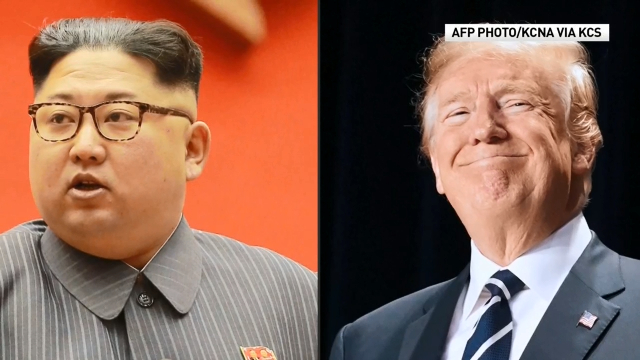
11:07, 25-May-2018
Trump Cancels Summit: US, DPRK likely to continue to communicate via back channels
02:28

The cancelled Singapore summit doesn't necessarily mean silence between Washington and Pyongyang. For decades, both sides have communicated behind the scenes - quietly - and almost always indirectly through a few established channels. UN correspondent Liling Tan has a look at these not-so-secret contacts that remain in play.
Without an embassy in the United States, the Democratic People's Republic of Korea is represented here through its mission to the United Nations.
Housed inconspicuously in this building in Midtown East Manhattan, it's known as the "New York Channel", for decades serving as the only official backchannel through which Washington and Pyongyang communicate.
STEPHEN NOERPER SENIOR DIRECTOR, KOREA SOCIETY "The State Department has until recently had a point person on North Korea, who is basically the lead in terms of managing that. A special representative and that individual communicates directly with the North Korean mission here in New York."
LILING TAN NEW YORK "That individual was former U.S. envoy Joseph Yun, who worked with DPRK diplomat Pak Song Il on Otto Warmbier's return to the U.S. last summer. It's also the place where some of the negotiations for the recent release of three Korean-Americans reportedly took place, and where messages about plans for the summit between Kim Jong Un and Donald Trump are said to go through."
But what about U.S. representation in the DPRK the Scandinavian nation of Sweden represents U.S. interests there.
JAMES NOLT SENIOR FELLOW, WORLD POLICY INSTITUTE "The U.S. has an interest section in Pyongyang through the Swedish embassy there. Other American allies and friends have embassies in Pyongyang even though the United States does not."
A third point of contact is the demilitarized zone, that separates the DPRK and South Korea, which largely serves as a communications channel for operational matters.
STEPHEN NOERPER SENIOR DIRECTOR, KOREA SOCIETY "It's strategic and operational, but it's mainly to communicate senior level command and concerns, and cautionaries, warnings and assurances to the North Koreans, for example in anticipation of US-ROK exercise."
So even in the absence of formal diplomatic relations, there have been ways for the US and the DPRK to communicate indirectly. The question now is if and how the U.S. and the DPRK would use these channels to negotiate a resumption of denuclearization talks. Liling Tan, CGTN, New York.

SITEMAP
Copyright © 2018 CGTN. Beijing ICP prepared NO.16065310-3
Copyright © 2018 CGTN. Beijing ICP prepared NO.16065310-3